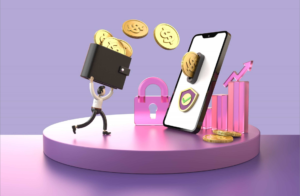
The most basic definition of a cryptocurrency is a digital currency that is secured by cryptographic means. Like the foreign currencies that we are familiar with – USD, EUR, KRW, there are also many types of cryptocurrencies, the most famous being bitcoin (BTC).
Apart from being encrypted and digital, cryptocurrencies are also known for these properties:
Secure
Cryptocurrencies are mostly generated on blockchains. The entire histories of each cryptocurrency are mapped onto a public, distributed ledger. In addition, each cryptocurrency transaction recorded carries information from past transactions to verify its authenticity. The public ledger can be accessed by anyone, and can be checked by anyone to make sure that the records are accurate and not tampered with. This also means that even if one record is destroyed, the information is still stored on the other ledgers.
Immutable
Cryptocurrency transactions are, for the most part, immutable, meaning that once transactions are recorded on the blockchain, it is extremely difficult to change the information. Courtesy of blockchain technology, this feature prevents bad actors from intruding and tampering with the data that has already been recorded. In fact, blockchain technology was proposed by two researchers, Stuart Haber and W. Scott Stornetta, who wished to implement a system with immutable infrastructure that could document transactions but not alter them.
Speedy
Sending cryptocurrencies across the globe may be faster than wire transfers. Transferring money to another country may take some time; the standard timeline for most international transfers is 1 to 4 business days. With cryptocurrency, this period may be shortened to minutes, or even seconds. This makes the future of money-transfer extremely promising.
Open-source
Blockchain technology is typically built on open-source software code, software with source codes that anyone can inspect, modify, and enhance. This allows multiple developers to contribute and constantly improve the software whenever bugs or glitches are spotted. This community of developers help to increase the efficiency of the blockchain. Another cool by-product of the open-source feature is the emergence of dApps.
Inclusive
There are many people in the world who do not have access to many, if any, banking services. Cryptocurrency and blockchain have the capability to allow this population to access financial services. One way could be to create personal digital profiles that can be accepted by financial institutions and banks as legitimate identities, since some people are unable to open bank accounts because they lack identities. Another way could be to enlist decentralised finance, or DeFi. DeFi applications aspire to provide financial systems that function independently without intermediaries like banks, and are powered by smart contracts. With DeFi applications, this population may even have access to typically traditional financial services like loans.





